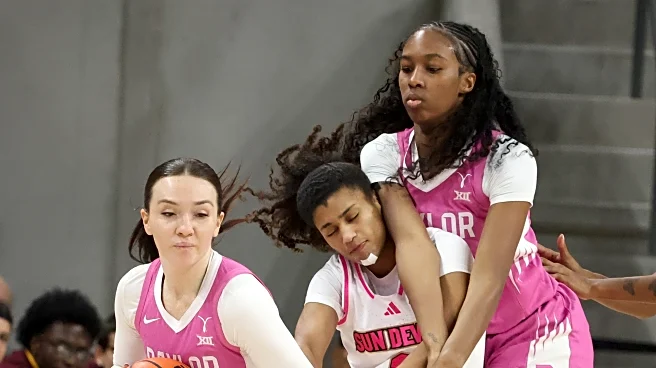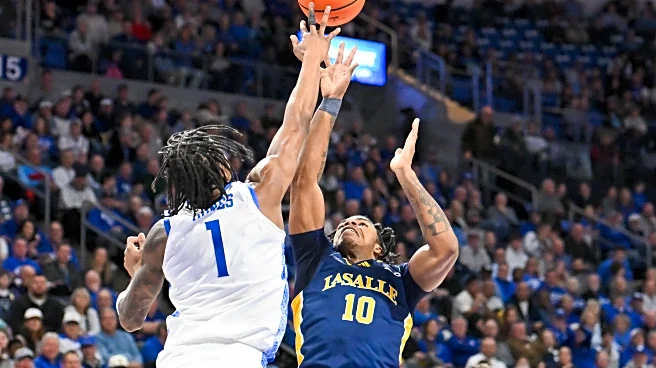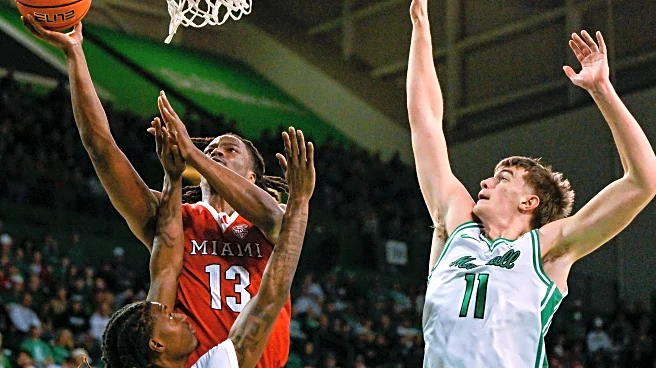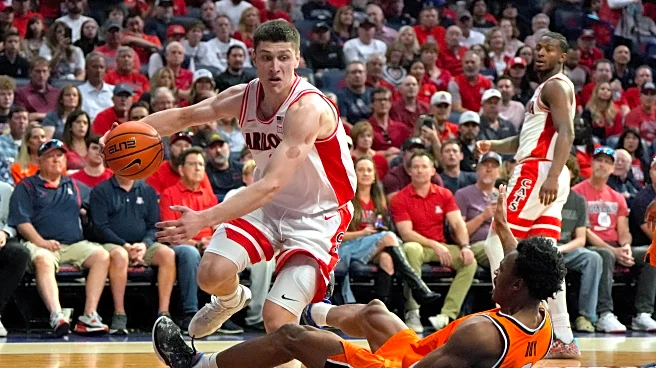What's Happening?
The Atlantic Coast Conference (ACC) has fined Clemson University $10,000 and issued a public reprimand to head coach Dabo Swinney. This action follows Swinney's critical comments regarding the officiating in Clemson's recent loss to Duke. The controversy
arose from a pass interference penalty against Clemson's defensive back Avieon Terrell during a crucial fourth-and-10 play. This penalty extended Duke's drive, leading to their winning touchdown. Swinney expressed his dissatisfaction with the call, labeling it as one of the worst he has seen in his coaching career. Despite the penalty, Swinney acknowledged that Clemson had other opportunities to secure a victory.
Why It's Important?
The fine and reprimand highlight the ACC's commitment to maintaining sportsmanship and integrity within collegiate athletics. Public criticism of officiating can undermine the authority of officials and the fairness of the sport. For Clemson, the financial penalty and public reprimand add to the challenges faced in a disappointing season, where they have fallen to a 3-5 record. The incident may also impact Swinney's reputation and the team's morale, as they navigate the remainder of the season. The ACC's actions serve as a reminder to coaches and teams about the importance of adhering to conference policies.
What's Next?
Clemson will need to regroup and focus on improving their performance in upcoming games to salvage their season. The team and coaching staff may also need to address internal strategies to avoid further penalties and ensure compliance with ACC policies. The incident could prompt discussions within the ACC about officiating standards and the enforcement of sportsmanship policies. Other teams and coaches may take note of the consequences faced by Clemson and Swinney, potentially influencing their own conduct and comments regarding officiating in future games.
Beyond the Headlines
The situation raises questions about the balance between free speech and sportsmanship in collegiate athletics. Coaches often face pressure to advocate for their teams, but must do so within the confines of conference regulations. The incident may spark broader conversations about the role of officiating in sports and the mechanisms in place to address grievances. Additionally, it highlights the potential impact of officiating decisions on game outcomes and team standings, which can have significant implications for postseason opportunities.
















